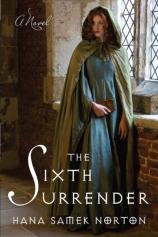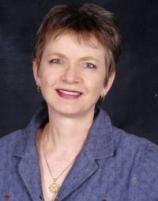Interview
Author Hana Samek Norton talks about her passion for reading and discusses how challenging her students in the classroom was the key to writing her first book.
Question: It's rare today to find an author who does nothing but write for a living. Do you have a day job other than writing, and if so, what is it? What are some other jobs you've had in your life? Have they influenced/inspired your writing?
Hana Samek Norton: I worked as a waitress, office help in a plumbing supplies company, teaching assistant, a college professor. Currently I teach “community” college part-time --- history of course, and consult on litigation support research.
Q: What compelled you to write your first book?
HSN: It started as a challenge to myself since I challenge my students to write and re-write. Many of them find college-level work daunting and some struggle with language and writing skills. I use myself as an example to show them that rejections, setbacks, and criticism are all part and parcel of the process of learning and achieving, for everybody.
Q: Have you always wanted to be a writer?
HSN: No --- but I was a reader from the moment I discovered that letters make up words.
Q: Tell us briefly about your book.
A: It's Anno Domini 1200—and medieval mayhem ensues when the octogenarian queen-duchess Aliénor of Aquitaine launches her final, and deadliest, dynastic chess game: to safeguard the crowns of Normandy and England for John Plantagenet, her last surviving son.
Her pawns are Juliana de Charnais, a plain and pious novice, and Guérin de Lasalle, an enigmatic mercenary knight. Lasalle has no intention of being a husband to the shy young woman, nor to become entangled in John’s own matrimonial mire. But at the heart of Aliénor's scheme is the mystery of his own past that could cost John his thrones --- and Juliana her life.
Q: What are you working on at the moment?
HSN: I am working on a sequel which takes place from 1204 to about 1210. This is a fascinating period leading to the conflict that eventually culminated in the Magna Carta, and to the further disintegration of the Plantagenet Empire on the continent. I am glad that Aliénor did not live long enough to see that.
Q: If you could live in one of your books, which one would you live in?
HSN: I am a historian so I have no illusions about the past. I like to live in the 21st century --- central heating, hot and cold running water, contraception, antibiotics, Novocain. Can’t beat that.
Q: The main characters of your stories --- do you find that you put a little of yourself into each of them or do you create them to be completely different from you?
HSN: Their admirable qualities are of course all me. I have no idea where the nasty ones come from.
Q: When growing up, did you have a favorite author, book series, or book?
HSN: I did read a lot of what is referred to as historical fiction, for example, the Polish writer Henryk Sienkiewicz. He won the Nobel Prize for literature in 1905 for “outstanding merit as epic writer.” His novels WITH FIRE AND SWORD, THE DELUGE, THE CRUSADERS (Teutonic knights) just amazed me and I suppose became that gateway drug to not only historical fiction, but also to the study of history. I also became addicted to Alexandre Dumas and Jules Verne.
When my family came to Canada I discovered Anya Seton, Daphne du Maurier, Mary Stewart, Margaret Irwin, Edith Pargeter, Zoe Oldenbourgh, Dorothy Dunnett, Jan Cox Speas, Teresa Denys….
Q: When they write your obituary, what do you hope they will say about your book/s and writing? What do you hope they will say about you?
HSN: Published but perished anyway.
Q: Is there anyone who has inspired, motivated, encouraged or supported your writing?
HSN: My friends asking me “When are you going to be finished?”
Q: Is there any particular book that, when you read it, you thought, "I wish I had written that!"?
HSN: Pretty much all of them.
Q: In my experience, some things come quite easily (like creating the setting) and other things aren’t so easy (like deciding on a title). What comes easily to you and what do you find more difficult?
HSN: I love research (it’s an occupational hazard), for me, the writing is a matter of persistence and deadlines.
Q: Have you ever had a character take over a story and move it in a different direction than you had originally intended? How did you handle it?
HSN: I let him go to see where he takes me. He turned out to have a better idea than I did.
Interview courtesy of The Hot Author Report (http://www.thehotauthorreport.com).




